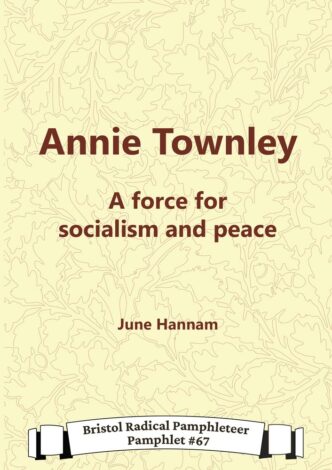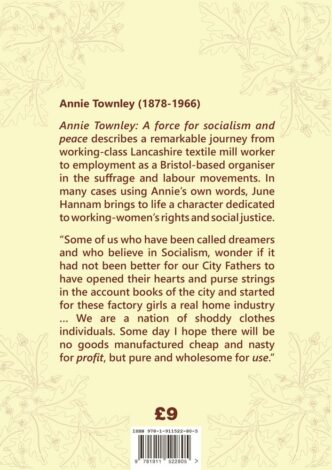Annie Townley (1878-1966)
Annie Townley: A force for socialism and peace describes a remarkable journey from working-class Lancashire textile mill worker to employment as a Bristol-based organiser in the suffrage and labour movements. In many cases using Annie’s own words, June Hannam brings to life a character dedicated to working-women’s rights and social justice.
“Some of us who have been called dreamers and who believe in Socialism, wonder if it had not been better for our City Fathers to have opened their hearts and purse strings in the account books of the city and started for these factory girls a real home industry … We are a nation of shoddy clothes individuals. Some day I hope there will be no goods manufactured cheap and nasty for profit, but pure and wholesome for use.”






